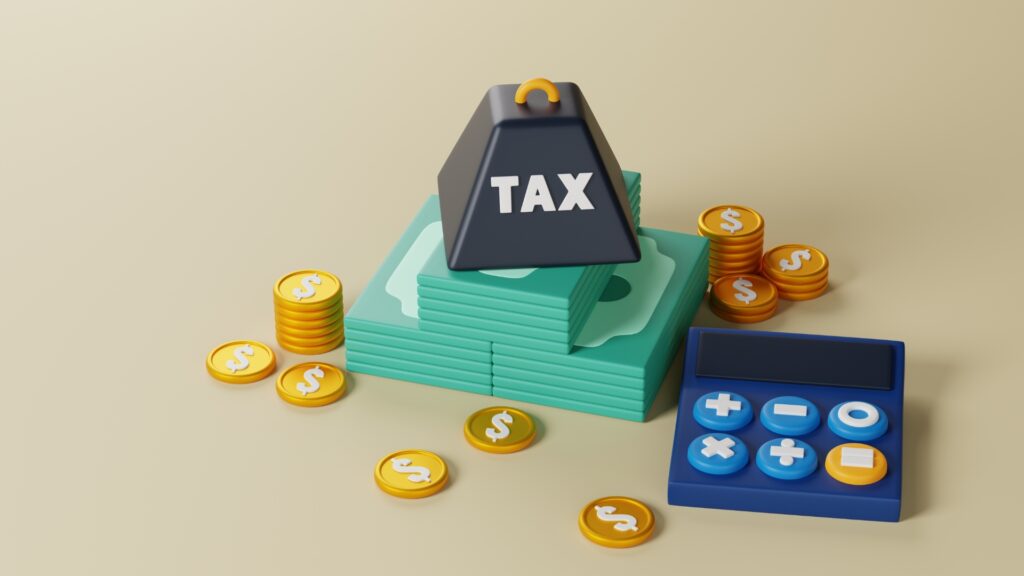What DeFi Actually Means for Your Taxes
Understanding decentralized finance (DeFi) isn’t just about knowing how to earn more crypto it’s also about knowing how the IRS (and global tax agencies) treat those earnings. DeFi opens the door to financial freedom, but it also comes with tax responsibilities that many users overlook.
What Are DeFi Transactions?
In simple terms, DeFi refers to financial services built on blockchain technology that don’t rely on traditional intermediaries like banks. These services use smart contracts to enable peer to peer transactions. Common activities include:
Lending and borrowing
Trading or swapping tokens
Providing liquidity
Staking and yield farming
Though these actions happen on decentralized platforms, the IRS treats them similarly to traditional financial activities.
Why DeFi Triggers Taxable Events
Even though many DeFi platforms operate without centralized oversight, the U.S. tax code doesn’t exempt them. Most actions you take in DeFi result in taxable events. Here’s why:
Token swaps are often treated like property exchanges, triggering capital gains or losses.
Staking rewards and yield from liquidity pools may be classified as ordinary income, depending on how and when they’re received.
Lending earnings are also typically considered income, and the interest you receive is taxed accordingly.
In short, whenever you earn, swap, or exit a position in DeFi, there’s a good chance it carries a tax implication.
Common DeFi Actions That Are Taxable
Take note of these DeFi moves that create potential tax liabilities:
Staking: Rewards earned through staking are generally taxed as income when received.
Lending and Borrowing: Interest earned on lending platforms is typically considered income.
Token Swaps: Exchanging one token for another may trigger capital gains or losses based on price changes since acquisition.
Yield Farming: Rewards from providing liquidity, especially if paid in a different token, often count as income.
Understanding which transactions are taxable and how is the first step toward DeFi tax compliance.
Capital Gains vs. Ordinary Income in DeFi Context
In the world of DeFi, not all gains are treated the same. Most crypto users are already familiar with capital gains the profit you make from buying low and selling high. That still applies here. Swapping tokens, selling at a gain, or earning from price appreciation? You’re looking at capital gains, and how much you owe often depends on how long you held the asset.
But the game changes when you start earning tokens. Staking rewards, yield farming payouts, or tokens airdropped into your wallet? That’s ordinary income. The IRS treats these as if you were paid in cash at fair market value the day you received them even if the token’s worth tanks later.
NFTs and liquidity pool (LP) tokens can add extra layers. NFTs can be income if earned through play to earn or as a reward, or capital assets if held and sold later. LP tokens work like receipts for liquidity deposits. When you exit a pool, that’s a taxable event and any interest earned along the way is income.
There’s one upside: tax loss harvesting. The volatility of crypto means many investors end up with underwater tokens. Selling at a loss can offset gains elsewhere or reduce your total tax bill. In DeFi, this can apply to abandoned coins, rugged tokens, or failed yield plays but only if you make the moves before year end.
Bottom line: DeFi isn’t tax free; it’s just tax complicated. Know what bucket your earnings fall into, and stay ready with solid records.
Staying Compliant: Tracking & Reporting

DeFi taxes are only as accurate as your records, and in a world where trades happen across dozens of wallets, DAOs, and protocols, that’s not easy. Start with a crypto tax tracker that actually understands DeFi. Tools like Zapper, DeBank, Koinly, and TokenTax can sync wallet activity, label transactions by type, and flag taxable events. Not perfect, but a solid baseline.
Calculating gains and losses comes down to cost basis and fair market value basic tax math made complex by the volume and variety in DeFi. That swap between Token A and Token B? It’s a taxable event, and it needs an exact value at the time of trade. Same goes for yield earnings; if you auto compound, you’re potentially triggering income tax every time.
Backups matter too. Export CSVs, save wallet logs, keep screenshots of big transactions. The IRS isn’t known for leniency when it comes to lost records. And be aware: certain smart contracts, like token rebasing or protocol auto staking, quietly trigger liabilities. If you wake up richer and haven’t sold a thing, you still might owe.
Bottom line: DeFi can reward you but it can also surprise you. Track everything early, or pay later. Compliance isn’t just a checkbox it’s protection.
Global Regulation Outlook
As decentralized finance (DeFi) continues to grow, regulators across the globe are paying closer attention. Laws are evolving and in some cases, still unclear which means understanding the current landscape is critical if you want to stay on the right side of compliance.
How Major Jurisdictions Are Approaching DeFi
Different countries are tackling DeFi taxation in various ways, often extending or adapting their existing crypto tax frameworks:
United States
The IRS considers most DeFi activities as taxable events, often treated as capital gains or ordinary income.
Unclear guidance on staking, wrapped tokens, and liquidity pools poses challenges.
More enforcement activity is expected as tools like blockchain analytics become more sophisticated.
United Kingdom
HMRC views DeFi rewards as either income or capital gains depending on the nature of the transaction.
There’s ongoing consultation about clearer DeFi guidance especially around lending protocols and synthetic assets.
European Union
With MiCA (Markets in Crypto Assets Regulation) rolling out, expect stricter compliance requirements.
Some EU countries like Germany offer favorable taxation on long term holdings (e.g., no tax after 1 year hold).
Still, DeFi specific tax rules remain ambiguous in many member states.
Watch Emerging Reporting Obligations
As regulators aim to close gaps in crypto reporting, several trends are emerging:
Push for automatic reporting frameworks (similar to FATCA/CRS)
Potential KYC requirements for DeFi interfaces and wallets
More frequent requests for transaction level data by tax authorities
Staying ahead of these shifts will be critical to avoiding last minute surprises.
Why Regulators Are Paying More Attention
DeFi is quickly becoming too big to ignore. Key concerns driving interest include:
Risk of tax evasion due to anonymous or pseudonymous wallets
Complexity of DeFi products making self reporting difficult
Increased institutional involvement triggering stricter oversight
Bottom Line: Regulatory scrutiny is only going to increase. If you’re active in DeFi, keeping up with local and international tax developments isn’t just smart it’s essential.
Pro Tips for Avoiding IRS Trouble
Let’s keep it direct: blockchain privacy doesn’t mean tax immunity. Just because DeFi operates on chain and without middlemen doesn’t mean the IRS or other authorities can’t trace it. Public ledgers are, well, public. When audit season hits, claiming ignorance or technical complexity won’t win sympathy.
That’s why solid crypto tax software isn’t optional. You need tools that actually recognize DeFi protocols whether you’re yield farming on obscure platforms or swapping tokens through decentralized aggregators. Many off the shelf solutions don’t cut it. Find something that catches edge cases like wrapped tokens or perpetual interest accrual.
And when things feel murky especially with large gains, cross chain transactions, or errors in your on chain records call in a professional. Crypto savvy tax pros are worth their fees. They know how to explain your activities in a way that makes sense to regulators and keeps penalties off the table.
Need a deeper dive? Check out our full DeFi tax guide.
Future Proofing Your DeFi Strategy
As decentralized finance continues to evolve, so do the rules that govern its taxation. Proactive planning can help you stay ahead of compliance challenges, reduce your tax burden, and avoid unnecessary surprises.
Plan Ahead: Year End Tax Moves
Waiting until tax season is a mistake especially in the fast paced world of DeFi. Strategic tax planning before the end of the calendar year can help minimize liabilities and keep you compliant.
Review all capital gains and losses before December 31
Harvest tax losses to offset gains where applicable
Convert reward tokens at key moments to optimize timing and value
Build a Tax Efficient Portfolio
Smart DeFi investors aren’t just maximizing yield they’re minimizing friction with the IRS. Think beyond returns to structure a portfolio that aligns with current tax laws.
Choose tokens and protocols with clearer tax guidance
Limit excessive swapping to reduce taxable events
Consolidate assets in wallets that integrate with tax tracking tools
Prepare for Increased Regulation
Global trends point toward tighter regulation, including Know Your Customer (KYC) requirements and expanded transaction reporting. Don’t wait for rules to change adapt now.
Watch for jurisdiction specific compliance updates
Keep detailed logs of wallet addresses and smart contract interaction histories
Choose DeFi platforms that are aligning with emerging regulatory frameworks
Want a full breakdown? Read the DeFi tax guide for tools, strategies, and real world examples.
Final Thought
Let your wallet work for you but do it wisely. A well structured DeFi strategy not only boosts your earnings but also ensures you stay off the audit radar.

 Is the innovative founder of The Digi Chain Exchange, a comprehensive platform dedicated to educating and empowering individuals in the world of digital finance. With a strong academic background in Finance and Computer Science from the University of Michigan, Scotterrin began her career in traditional finance before shifting her focus to blockchain technology and cryptocurrencies. An early adopter of Bitcoin and Ethereum, Adaha’s deep understanding of the transformative potential of blockchain led her to create The Digi Chain Exchange, which has since become a trusted resource for crypto news, market trends, and investment strategies.
Is the innovative founder of The Digi Chain Exchange, a comprehensive platform dedicated to educating and empowering individuals in the world of digital finance. With a strong academic background in Finance and Computer Science from the University of Michigan, Scotterrin began her career in traditional finance before shifting her focus to blockchain technology and cryptocurrencies. An early adopter of Bitcoin and Ethereum, Adaha’s deep understanding of the transformative potential of blockchain led her to create The Digi Chain Exchange, which has since become a trusted resource for crypto news, market trends, and investment strategies.

